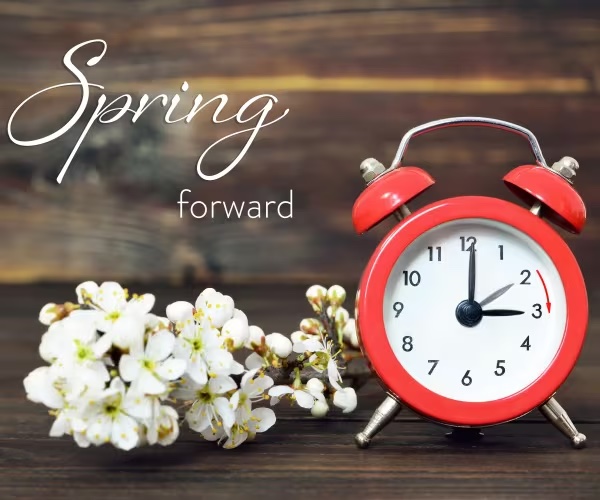US [& UK]: Start Preparing for Daylight Saving Time Switch Now

(Dreamstime)
By Lynn C. Allison From Newsmax
While recent research did not find evidence that switching to daylight saving time (DST) increases the risk of heart attacks, as previously thought, studies have linked the transition to an increased risk of stroke, traffic accidents, emergency room visits, and serious mood disturbances, according to the Sleep Foundation. This year, the change starts at 2 a.m. on Sunday, March 10.
A lack of sleep caused by the time change can affect thinking, decision-making, and productivity as we spring forward by an hour this weekend. Fewer negative health benefits are associated with “falling back” in autumn, though most people often feel sluggish and tired after any time shift.
“It’s time for daylight saving time to be put to bed and instead switch to standard time throughout the year,” says Dr. Jacob Teitelbaum, board-certified internist and author of From Fatigued to Fantastic! “Our internal clocks, called the circadian rhythm, are critical for healthy functioning — and this includes sleep, cognition, and energy. Driving to work or school when it’s still dark outside and your brain is still sleepy is associated with increased accidents and poor functioning, according to the New England Journal of Medicine.”
Teitelbaum says that the extra hour of sunlight in the evening makes it more difficult for some people to fall asleep, a real problem in our already sleep-deprived society. But until the DST laws change, there are some natural, helpful ways to prepare for the transition.
• Shift your bedtime by 15 minutes each day leading up to DST. If your normal bedtime is 10 p.m., the goal is to reach your new bedtime of 9 p.m. by the Saturday night before DST starts. This means shifting your habits, too, says The New York Times. Finish your evening meal two hours before bedtime and avoid caffeine for at least six hours before you go to bed. Drinking alcohol before bedtime can also disrupt your sleep.
• Consider relaxation techniques. According to the Sleep Foundation, deep breathing and mindfulness techniques are important year-round, but especially in the week before the time change. These methods can bring calm to your mind and body and make it easier to smoothly transition into sleep.
• Set the clocks forward before you go to bed. Although the time change doesn’t officially occur before 2 a.m., set your watch and household clocks to the new time before you go to bed if they don’t adjust automatically.
• Prioritize sun exposure. On the Sunday after the time change, plan to spend time outside to help your body’s internal clock adjust to the new timing of light and dark.
• Keep your schedule light. Try not to overload your schedule Sunday and Monday in case you experience daytime sleepiness. It’s also best to avoid long drives right after the time change because of the potential dangers of drowsy driving.
• Take a short nap if necessary. If you grapple with significant daytime sleepiness in the days after switching to DST, a short, 30-minute nap may be helpful says the Sleep Foundation. Naps are best in the early afternoon when people experience a dip in wakefulness. Avoid late afternoon naps that can further disrupt your sleep schedule.
• Put your bedroom clock or phone out of arm’s reach and away from you so you can’t see it. Looking at the time frequently aggravates sleep problems and is frustrating, says Teitelbaum.
© 2024 NewsmaxHealth. All rights reserved.
For more on this story go to: NEWSMAX





